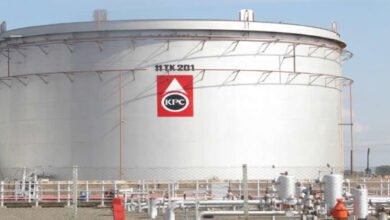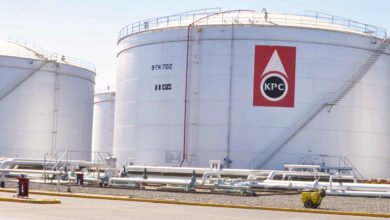
President William Ruto recently claimed that his Kenya Kwanza administration has generated over 250,000 jobs for youth through the Affordable Housing project.
He shared this figure during the 11th National and County Governments Coordinating Summit at State House, Nairobi, where he said the project’s potential is to address Kenya’s growing unemployment crisis.
“To date, the programme has generated 250,000 direct jobs, with thousands more emerging through the building and construction value chain that supports housing development,” said President Ruto.
However, this figure has sparked debate, as data from the Kenya National Bureau of Statistics (KNBS) paints a more cautious picture of the construction sector’s employment.
According to May 2025 report by KNBS, cement consumption — a key indicator of construction activity — fell by 7.2 percent to 8.54 million metric tonnes in 2024.
Employment in the sector also dipped slightly, from 226,300 workers in 2023 to 223,400 in 2024, contradicting construction jobs the President had mentioned.
The Affordable Housing Programme is funded through a 2.75 percent mandatory payslip deduction from roughly 3.1 million formally employed Kenyans.
Inflation on construction materials and related inputs averaged 2.83 percent in 2024, up from 2.30 percent in 2023, further straining project finances.
Also Read: Ruto’s Trip to India Yields 5 Deals Including Affordable Housing Units
Policy Interventions to Reduce Construction Costs
The government is exploring several measures aimed at reducing production costs and reviving sector momentum.
This includes the proposed reduction of Export Promotion Levies (EPL) on critical steel imports, which is outlined in the Finance Bill 2025.
“I plan that by 2027, we will have 500,000 people working in the programme,” said the President.
The EPL was introduced in 2023 by the current administration as part of efforts to promote local manufacturing, currently imposes a 17.5 percent levy on various steel products.
But in response to rising material costs and sluggish construction activity, the Finance Bill is addressing this levy by cutting it to 5 percent on select semi-finished and semi-processed steel products, including hot-worked bars, rods, and hot-rolled flat iron products.
Treasury Cabinet Secretary John Mbadi believes this adjustment could revitalize the construction and manufacturing sectors by improving the affordability and accessibility of essential raw materials.
He argues that the move will provide a timely boost to the Affordable Housing Programme, which has so far delivered its first 5,000 units to the public.






What a data of un-ambiguity and preserveness of valuable knowledge concerning unpredicted
emotions.
I would like to thnkx for the efforts you’ve put in writing this site. I am hoping the same high-grade web site post from you in the upcoming also. In fact your creative writing skills has encouraged me to get my own blog now. Really the blogging is spreading its wings fast. Your write up is a great example of it.
Hi, I think your site might be having browser compatibility issues. When I look at your website in Safari, it looks fine but when opening in Internet Explorer, it has some overlapping. I just wanted to give you a quick heads up! Other then that, fantastic blog!
you might have an ideal blog here! would you wish to make some invite posts on my weblog?
I like this post, enjoyed this one appreciate it for posting.
I just couldn’t depart your site before suggesting that I extremely enjoyed the standard info a person provide for your visitors? Is going to be back often in order to check up on new posts
You actually make it seem really easy along with your presentation however I find this topic to be actually one thing which I think I would by no means understand. It kind of feels too complex and very huge for me. I’m looking ahead in your next publish, I will try to get the dangle of it!
Simply a smiling visitant here to share the love (:, btw great style.
Having read this I thought it was very informative. I appreciate you taking the time and effort to put this article together. I once again find myself spending way to much time both reading and commenting. But so what, it was still worth it!
This really answered my drawback, thank you!
What’s Happening i’m new to this, I stumbled upon this I’ve found It positively helpful and it has helped me out loads. I hope to contribute & help other users like its helped me. Great job.
Amazing blog! Do you have any hints for aspiring writers? I’m hoping to start my own site soon but I’m a little lost on everything. Would you propose starting with a free platform like WordPress or go for a paid option? There are so many options out there that I’m completely confused .. Any recommendations? Appreciate it!
so much excellent info on here, : D.
When I initially commented I clicked the “Notify me when new comments are added” checkbox and now each time a comment is added I get several e-mails with the same comment. Is there any way you can remove me from that service? Appreciate it!
whoah this weblog is great i love reading your posts. Keep up the great work! You know, a lot of persons are searching around for this info, you could aid them greatly.
Great blog here! Also your site loads up fast! What host are you using? Can I get your affiliate link to your host? I wish my site loaded up as quickly as yours lol
I love your blog.. very nice colors & theme. Did you make this website yourself or did you hire someone to do it for you? Plz answer back as I’m looking to create my own blog and would like to find out where u got this from. thanks a lot
I used to be recommended this web site via my cousin. I am now not positive whether this submit is written by means of him as nobody else recognise such distinctive approximately my difficulty. You are incredible! Thank you!
You made some decent points there. I appeared on the internet for the difficulty and found most individuals will go together with along with your website.
Attractive section of content. I just stumbled upon your weblog and in accession capital to claim that I acquire actually enjoyed account your weblog posts. Anyway I will be subscribing in your augment and even I achievement you get entry to persistently fast.